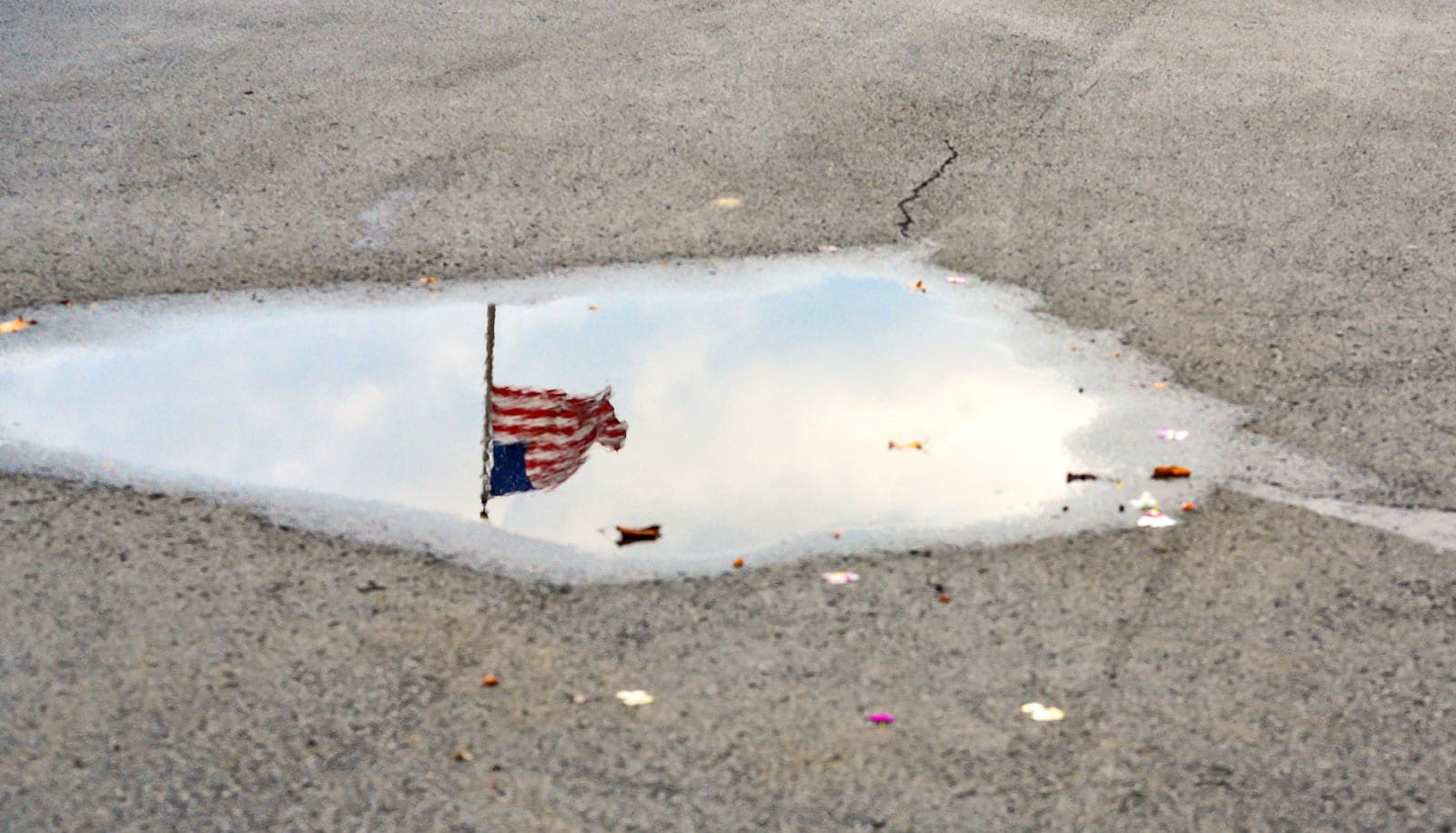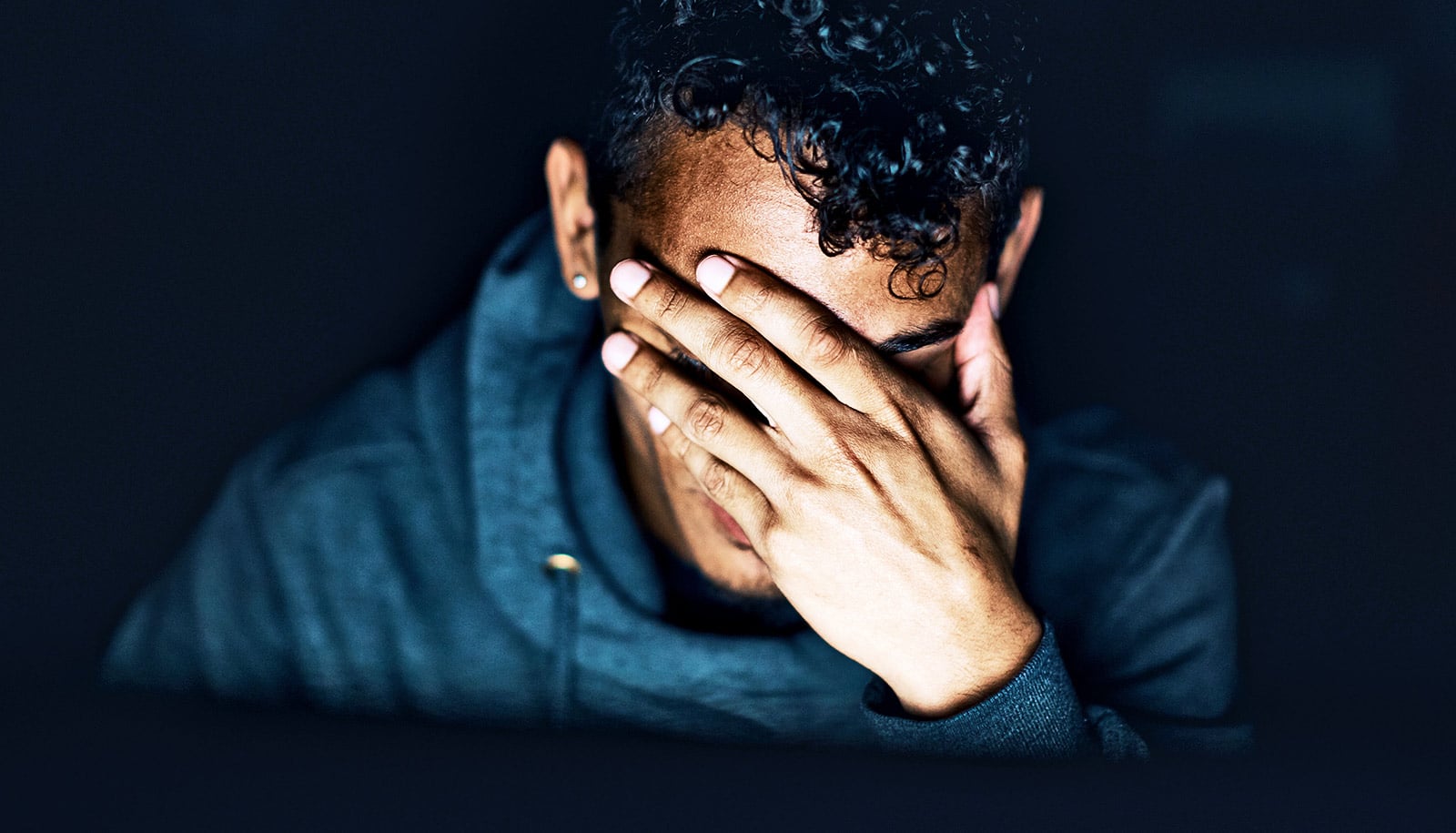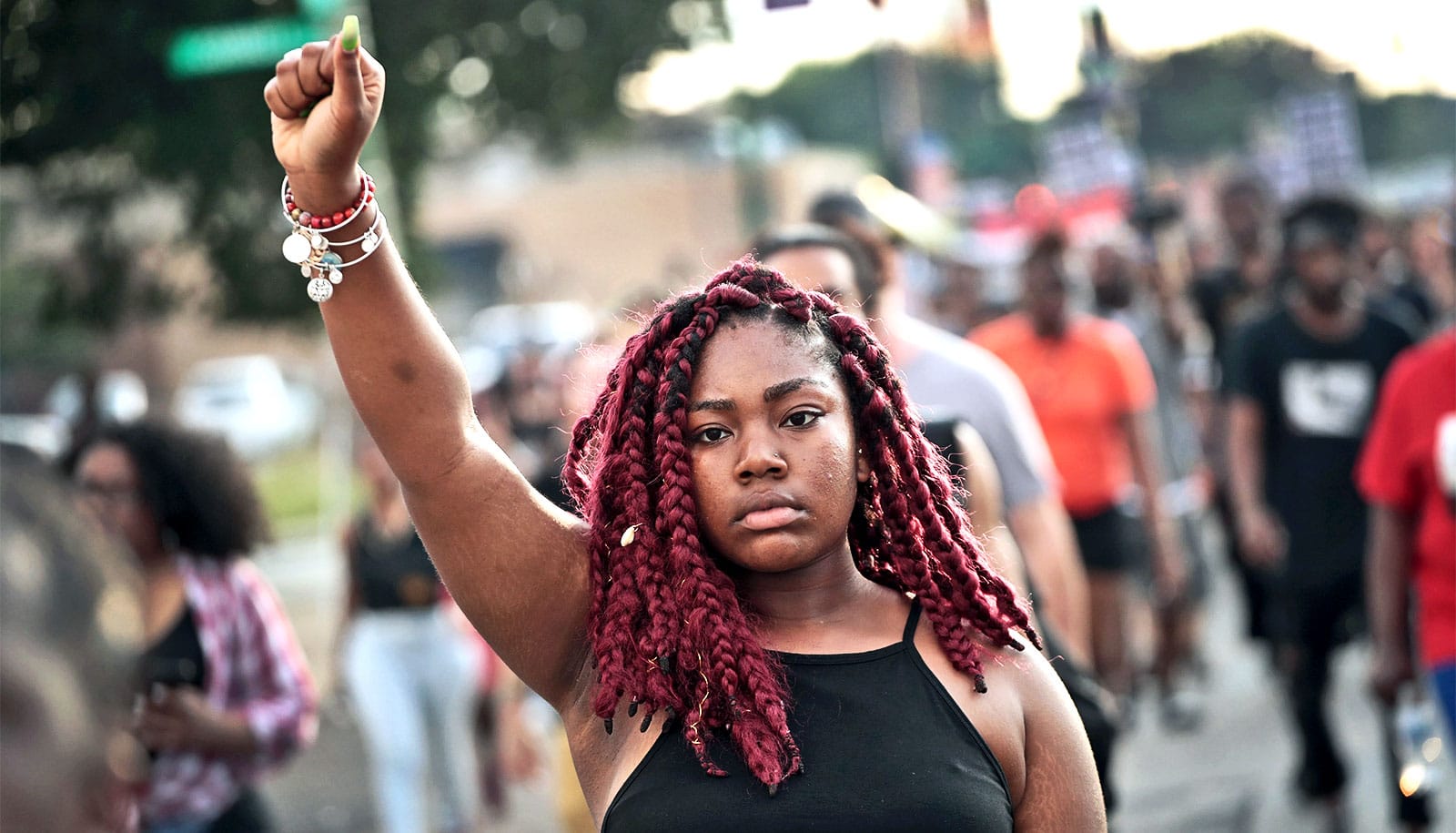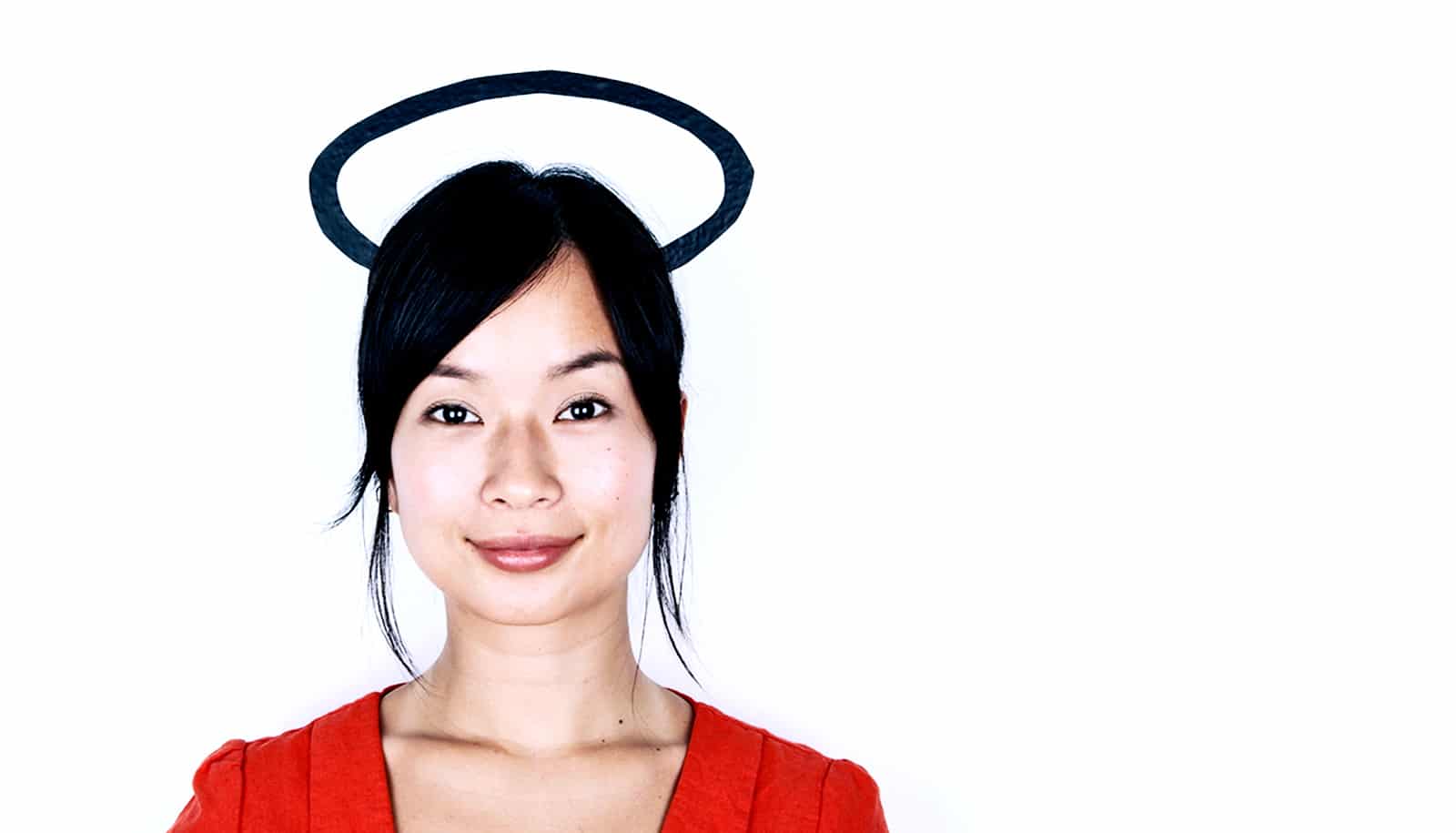Beneath many of the coronavirus ethical dilemmas facing Americans lie longstanding inequities in our social structure and failures of social justice, say three ethicists.
They call the current crisis a “wake-up call” for the future.
Taking part in this roundtable discussion of ethics and COVID-19 are Randall Curren, William FitzPatrick, and Rosa Terlazzo.
“The most vulnerable are going to suffer the most here, in ways that are completely foreseeable and wholly due to the way that we’ve structured society.”
Curren, a professor of philosophy and chair of the philosophy department at the University of Rochester, is an expert in ethics, moral psychology, and the philosophy of education. FitzPatrick, professor of intellectual and moral philosophy, specializes in metaethics, normative ethics, and bioethics. Terlazzo, an associate professor of philosophy, joined Rochester’s faculty this year. A moral, social, and political philosopher, her areas of research include autonomy, well-being, and transformative experiences.
The ethicists answer questions about COVID-19 ethics here:
How can we understand the nature of the moral dilemmas the new coronavirus presents?
FitzPatrick: There’s certainly a moral dilemma for people who may have been exposed and so should be self-quarantining but cannot afford to stay home from work because the lost income will keep them from meeting their basic needs or those of their families. But the question we need to ask is: what is the deeper source of that dilemma, such that it arises in the first place? This is a dilemma that people shouldn’t have to find themselves in to begin with, and the reason they do is that our society lacks an adequate social safety net, which is a failure of social justice at a basic level.
Terlazzo: Things are as dire as they are because we lack that social safety net.
FitzPatrick: If there were adequate guarantees of paid sick leave, for example, people would not face this sort of dilemma, or at least not as sharply. Similarly, if we had a just and rationally managed health care system, beginning with affordable and high-quality universal coverage, people would not face such moral dilemmas as whether to seek needed treatments or forego them out of fear of major financial loss.
To at least a large extent, the moral dilemmas people face in our society arise in the first place only due to background moral failures at the level of social institutions and policies. The current situation is a wake-up call that we need to undertake a variety of substantial and structural changes if we are to handle similar crises more effectively, humanely, and justly in the future.
How do particular ethical problems presented by this emergency intersect with larger structural questions?
Terlazzo: I’ll focus on some of the more specific issues closest to my own areas of expertise, in areas of gender, race, and immigration status. Rates of domestic violence are going through the roof right now, in a way that is, unfortunately, totally predictable when you combine abusive tendencies with high levels of stress and no opportunity for targets of that abuse to leave the scene. There are creative responses that we can take here, in parallel to the hotels that are offering free housing to the homeless—they could also offer space to those suffering domestic violence, and their children.
But the problem is, once again, structural. It’s extremely hard to leave an abusive situation when you have children and can’t afford childcare, or you don’t have somewhere to go for more than a few days, or you know that your abusive spouse can easily buy a gun—and that women are more likely to be killed by an intimate partner than by anyone else.
Or think about the issue of race. Seventy percent of the people who have died of COVID-19 in Louisiana are black—and only about 30% of the population there is black. Part of that is because things are concentrated in New Orleans, but a much bigger part is social determinants of health. Black Americans are much, much more likely to have the comorbidities that make this disease deadly—and that, once again, is for structural reasons. And those structural features also lead to black Americans being incarcerated at extremely disproportionate rates—and prisons and jails are some of the most dangerous places to be right now.
Undocumented workers play an essential role in our food production system in the US. They do agricultural work that is backbreaking, low-paid, and often dangerous. But now it’s even more dangerous. Places like slaughterhouses, which pack workers in and are poorly ventilated, are especially hazardous—they’re perfect places to get infected. These workers are keeping food on our tables and risking their lives to do it. But they have even less of a social safety net than the rest of us. They’re often afraid to seek medical care because of fear of deportation. They pay taxes, but they don’t have access to social services. They’re not getting relief checks.
FitzPatrick: Many of the ethical problems here extend to farmworkers in the US more generally, who are considered “essential” for purposes of maintaining the country’s food supply but are not provided the information or protections needed to do their work safely or the conditions under which they can do it stably and sustainably. Of the more than 2.4 million farm laborers in the US, who earn an average of just over $10 an hour, fewer than half have health insurance. Many are economically compelled to live in crowded conditions and to carpool to the fields where they work, only to find that work still governed by expectations that fail to respect social distancing protocols.
“Who is more vulnerable in this society than the agricultural workers on whom our lives depend?”
And to add to the irony, the very laborers who are burdened with these challenges to help secure the food supply are themselves more likely under these conditions to experience food insecurity, having less access than the more privileged to well-stocked stores or even to food banks before supplies run out (given time constraints imposed by their working conditions and complications with childcare, for example).
It is pretty blatant moral hypocrisy for the wealthiest country in the world to tolerate such conditions, which again points to the need for deep changes in the way we do things generally, quite apart from the current emergency we’re in.
What are the ethical responsibilities of governments in a situation like this?
Curren: The first obligation of governments is to be prepared to protect everyone’s fundamental rights and interests from known threats. This includes but goes far beyond the provision of an adequate social safety net. No one knew exactly when a pandemic might strike, but the threat of a pandemic that could kill millions of people has been a known threat for many years, and federal preparedness has meanwhile remained obsessively focused on terrorist threats.
Contributing to the threat of pandemics and adding further pervasive threats are the failures of our federal government to prevent and prepare for catastrophic destabilization of Earth’s climate. A warming planet is one in which disease spreads more easily, and there are already fully one billion people without clean water and the ability to wash their hands at home. That number will grow rapidly, putting people everywhere at greater risk, without effective global cooperation and a sensible science-based focus on the biggest threats we face.
From a national and global preparedness perspective, there is no ethical dilemma here. There is no ethically responsible alternative to focusing prevention on the known threats and what is most effective in protecting everyone’s vital interests. Yet, even in the midst of this crisis, the current administration is taking steps to weaken clean air standards. This will probably cost far more Americans their lives than the current pandemic will.
We’re not all facing the same risks—what does that mean, ethically?
Terlazzo: Looking at any of these questions as discrete ethical dilemmas in isolation from the broader structure we live in misses the most important ethical dimensions of the problems. The most vulnerable are going to suffer the most here, in ways that are completely foreseeable and wholly due to the way that we’ve structured society. In some cases, there are stop-gap measures that we can take, but what morality ultimately requires of us is to restructure society so as to minimize precarity and vulnerability—and especially to keep precarity and vulnerability from falling so firmly along demographic lines.
Curren: The heart of ethics is valuing each other. Valuing the good in each other and the good in what we have done and built together is something we all need and can give each other right now. One aspect of this is acknowledging our dependence on each other—an interdependence that might be overlooked in normal times.
From an anthropological perspective, we’ve created an immensely complex and densely interdependent social system. We’ve achieved an unprecedented level of collective affluence by specializing and becoming very good at specific tasks and being specific kinds of workers. What we do and what we are only makes sense as part of this intricately interrelated whole. Surprisingly, it often seems to be the people who reap the most benefit from this intricate system of interdependence who imagine they are self-sufficient and owe nothing to a social system that is—as we see now in this crisis—as vulnerable as its most vulnerable parts. Who is more vulnerable in this society than the agricultural workers on whom our lives depend?
FitzPatrick: The first step in limiting the impact of a pandemic is, once again, something that really needs to happen at the level of the government: the replacement of bluster and chaos with rational, evidence-based reasoning, and real moral and political leadership. Our political leaders don’t need to be medical experts, but they need to know enough to listen to them and allow public health expertise to guide policy.
What can we do, at an individual level, to help?
Curren: All of us individually would also do well to recognize that a centralized social safety net ultimately comes to rest in each of us doing what we can. When blood is needed in a crisis like this, it should be allocated based on greatest need. But where will it come from? It can only come from donors. In the US, the pool of blood donors is predominantly older people, and it has been shrinking. Younger people haven’t been stepping up in equal numbers to fill the void, but it’s younger people who can more safely donate during this pandemic. If you’re healthy and wondering what you can do to help the community on which we all depend, donating blood is a way you can help save lives.
FitzPatrick: At a time of social distancing, when we can’t take a walk through the neighborhood without staying well away from others, it’s more important than ever to go out of our way to engage in small acts of friendliness and neighborliness. Giving someone a wide berth in passing is the sort of thing that would normally carry negative connotations, but I’ve found that people are deliberately counteracting that by smiling and saying hello even while swerving—acknowledging that we’re all in this together. Small acts of social acknowledgement can make a big difference in how we all feel.
Curren: Although ethics seems particularly relevant when people face dilemmas, the guidance that ethical considerations offer is generally clearer and more decisive when we are not struggling with dilemmas. I emphasize this because, if you focus on dilemmas in which different ethical considerations point in different directions, you may come away thinking that ethics isn’t much help. But we’d all be much better off if we didn’t wait until crises occur to take ethics seriously.
Source: University of Rochester



